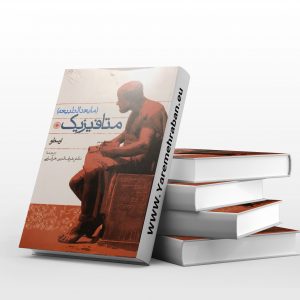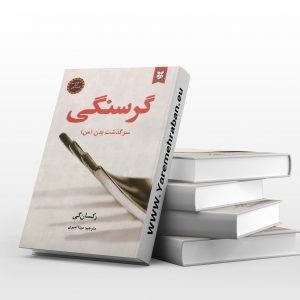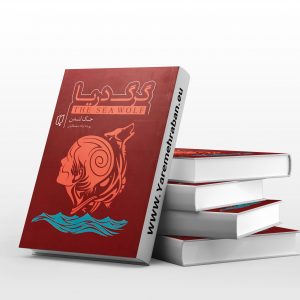Description
The Iliad is an epic poem written by Homer that was written around 750 BC. The Iliad tells the story of the darkest part of the Trojan War and focuses on the greatest Greek warrior and hero, Achilles, and his struggle with Agamemnon.
The book, the oldest Greek poem and probably the most well-known epic in Western literature, combines shocking images of the ups and downs of war, the besieged city of Elion, the battle between the gods, and the fate of mortals with a compelling account of events. Mixed. These precious poems, which have immortalized the early Greek culture in history, present unique stories and legends in the form of an extremely exciting narrative.
Introduction to Homer’s Iliad
Homer is a Greek poet and storyteller. He probably lived around 800 BC. This is the only thing available about Homer’s life. The only works left by him are two collections of poems called Iliad and Odyssey. Everything we know about the history and myths of ancient Greece is taken from the subjects of these poems. Homer became blind at the end of his life. At this time, he traveled from city to city, reciting his epic poems.
Introduction to the Iliad
The Iliad is one of the ancient Greek epics written by Homer, which, along with the Odyssey, is one of the classic works of world literature. The siege of Troy in present-day Turkey took place around 1200 BC, and Homer, the blind Greek novelist and poet, 400 years later, in the second half of the eighth century BC, fought that historic war between the Greeks and the Trojans. Created two long epic poems, the Iliad and the Odyssey.
The Iliad, arranged like the Odyssey with 24 hymns, relates to Mason’s wonder and supremacy, and deals with the expedition of the powerful Mason’s Agamemnon to reclaim his wife from the Prince of Troy. Is a city.
In part of this book, we read: Aurora, in a purple robe, shone on the earth as Zeus, the god whose thunder cried out, gathered the gods on the innumerable highest peaks of Olympus and began to speak. Everyone was silent. He said: O Gods of Olympus, listen to my words and I will tell you my last wish.
None of you, whether God or goddess, should seek to disobey my command. Be obedient, so that I can use my thoughts immediately.
Whoever turns away from the heavenly race and helps the people of Troy or the people of Achaea will not return to Olympus unless he is ashamed and wounded, or I will throw him into a dark hell, which is a distant place with gates and thresholds. They surround it, and the abyss is deep above the land of the dead, as the sky is the earth. From now on he will know that none of the gods is equal to me in ability.

About the Iliad
The book “Iliad” along with “Odyssey” is one of the epic and glorious works of Greece, which is in many ways similar to Ferdowsi’s Shahnameh and expresses the ancient history, myths, gods, etc. of ancient Greece in the form of poetry. Of course, these two poems, unlike the Shahnameh, which was written less than 1,000 years ago, date back 3,000 years and are perhaps more famous and credible than any other literary work around the world.
The siege of Troy in present-day Turkey took place around 1200 BC, and Homer, the blind Greek novelist and poet, 400 years later, in the second half of the eighth century BC, fought that historic war between the Greeks and the Trojans. Created two long epic poems, the Iliad and the Odyssey.
These two poems contain 28,000 “hexameter” poems, and their value is enough that writers can study ancient Greek literature only with the epic works of “Homer”. Although born in the city of Izmir (Semirna), in the west of present-day Turkey, he is known as one of the founders of European poetry and literature. He died.
As for the Iliad, which, like the Odyssey, is composed of 24 hymns, it relates to the period of Myson’s wonder and supremacy, and the subject is the campaign of Agamemnon, the powerful king of Myson, to reclaim his wife from the prince of Troy. »To that place. The Iliad describes the famous Greek heroes, such as Achilles, Ayas, Hector, Odysseus, and many of the gods of Mount Olympus, along with their moral habits and weaknesses.
This magnificent work, with the translation of the wise and respected Iranian translator, “Master Saeed Nafisi”, has doubled its value in Persian literature, and in it, one can choose the epic language for its prose, inspired by the Shahnameh. Viewed some of the best translated works in Iran.
In addition to accurately translating and preserving the authenticity of the original text, with a detailed and complete introduction, before reading the book, he acquainted the reader with general terms and characters of Greek mythology and made reading it much smoother and more eloquent. He considered the “Iliad” and the “Odyssey” necessary and necessary for each other and wrote:
“After translating the Iliad, I must also forcibly translate the Odyssey.”
“Per Publishing” has tried to republish works such as “Iliad” and “Odyssey” that have been published many times in this country, a small step towards acquainting the youth of this region with the literature and writing of professors such as “Nafisi” and in The heart of that eloquence of the pen, to show them history, which is very instructive.
Index of the book
Publisher’s speech
Introduction to the translator
The Age of Homer
Greek literature before Homer
Doubts about Homer
The Iliad and the Odyssey
Decomposition of the Iliad
Decomposition of the Odyssey
The Iliad and the Odyssey are from one poet
Homer and the Story of the Trojan War
The story of the inhabitants of Troy
The return of the heroes
Greek mythology
Greek Gods
The first hymn
The second hymn
The third hymn
The fourth hymn
The fifth hymn
The sixth hymn
Seventh Hymn
The eighth hymn
Ninth Song
The tenth song
Song 11
The Twelfth Hymn
Song 13
The fourteenth hymn
The fifteenth hymn
The sixteenth hymn
Seventeenth Hymn
Song 18
Song 19
The twentieth hymn
Twenty-first Hymn
Twenty-second Hymn
Twenty-third Hymn
Twenty-fourth Hymn
Appendices
The Iliad is a book that completely changed the way people thought about the ways of worshiping the gods of ancient Greece.
The Iliad and the Odyssey, Homer’s immortal works, are among the key sources for understanding Western civilization, and probably for this reason, Goethe considers these two works to be the most important books in the world.
The Iliad is a book that completely changed the way people thought about the ways of worshiping the gods of ancient Greece. According to the Greek historian Herodotus, the creator of these two works was someone who described the gods of the ancient Greeks and gave them a human identity; The same characters we know today as the gods of Olympus and the mythical characters of Greece. In these two books, Homer introduces heroes who have been famous for centuries. Join Iran Kitab to see what features these two works have and what effects they have left.
Who is the creator of the Iliad and the Odyssey?
Who is Homer? Are “The Iliad” and the “Odyssey” really written by Homer? If you want a straightforward answer, we have to say that these questions cannot be answered precisely. Today we are obsessed with knowing the biographies of others and want to know the exact details of each author, but Homer does not have a specific biography. It is believed that he probably lived in Greece in the seventh and eighth centuries BC.
There are many doubts about Homer’s life: some believe he was blind; Some believe that he was taken captive by the Babylonians, while others say that there was no person named “Homer” at all!
Although the Iliad and the Odyssey are attributed to Homer, due to the lack of sufficient information about his life, it cannot be said that he was the author of these two works. However, the Iliad and the Odyssey play such a prominent role in the study of language, communication, and the art of writing that the lack of information about the creator of the two books is not so important, and their tremendous impact on diverse societies and literary history. It is more important.
Epic poems
The Iliad is one of the first examples of epic poetry. In this work, a literary style with a rich poetic structure is established, whose expressive features and historical descriptions are unique. These poems, in the true sense of the word, are dramatic and the basis of their formation is not politics, religion and race, but pure and true feelings. These emotional allusions add to the appeal of the Iliad and the Odyssey to the audience and determine the historical popularity of these two works.
Homer’s works were forgotten for a time at a time when Latin was used more than Greek in Western Europe.
It was not until the fifteenth century that these fascinating poems were revived in Italy, and their first printed editions were published in Florence in 1488. From this date on, the Iliad and the Odyssey, with their artistic, descriptive and dramatic language, transformed the world of literature and inspired writers of different generations and nationalities around the world.
Genesis of the Iliad and the Odyssey
There are two hypotheses as to when the Iliad and The Odyssey were first written: Some believe that Homer was illiterate and that during his lifetime a scribe recorded these poems by engraving. . The second hypothesis states that Homer himself learned to write and wrote them down. But some still believe that the Greek alphabet did not exist in Homer’s time, and that these poems were recorded long after his death.
Regardless of these various hypotheses, the poems of the Iliad and the Odyssey show that the tradition of oral storytelling was as important at that time as it was in our time.
Today we consider the weight of poetry as a tool for creating rhythm that distinguishes poetry from prose, but the point to note is that weight and rhyme at the time were a means for oral storytellers to It made it possible to memorize poems. In other words, Homer worked to stabilize the stories by memorizing them.
The Iliad and the Odyssey are so long that there was no way to preserve them other than poetry. For this reason, the word “storyteller” is used correctly here. Stories in Homer’s time were remembered through composition.
1- Introducing the book on YouTube
2- Introducing the book in Aparat














Reviews
There are no reviews yet.